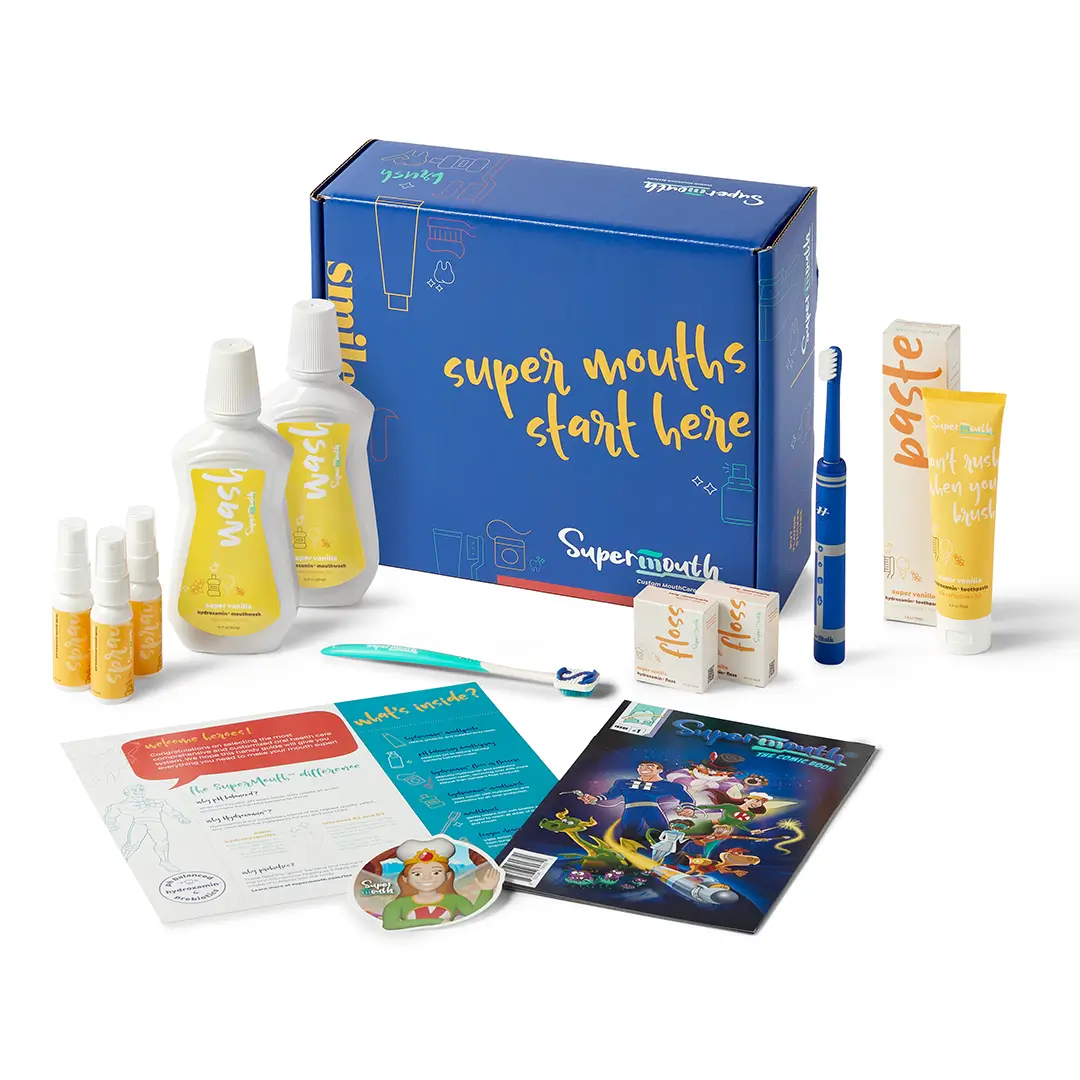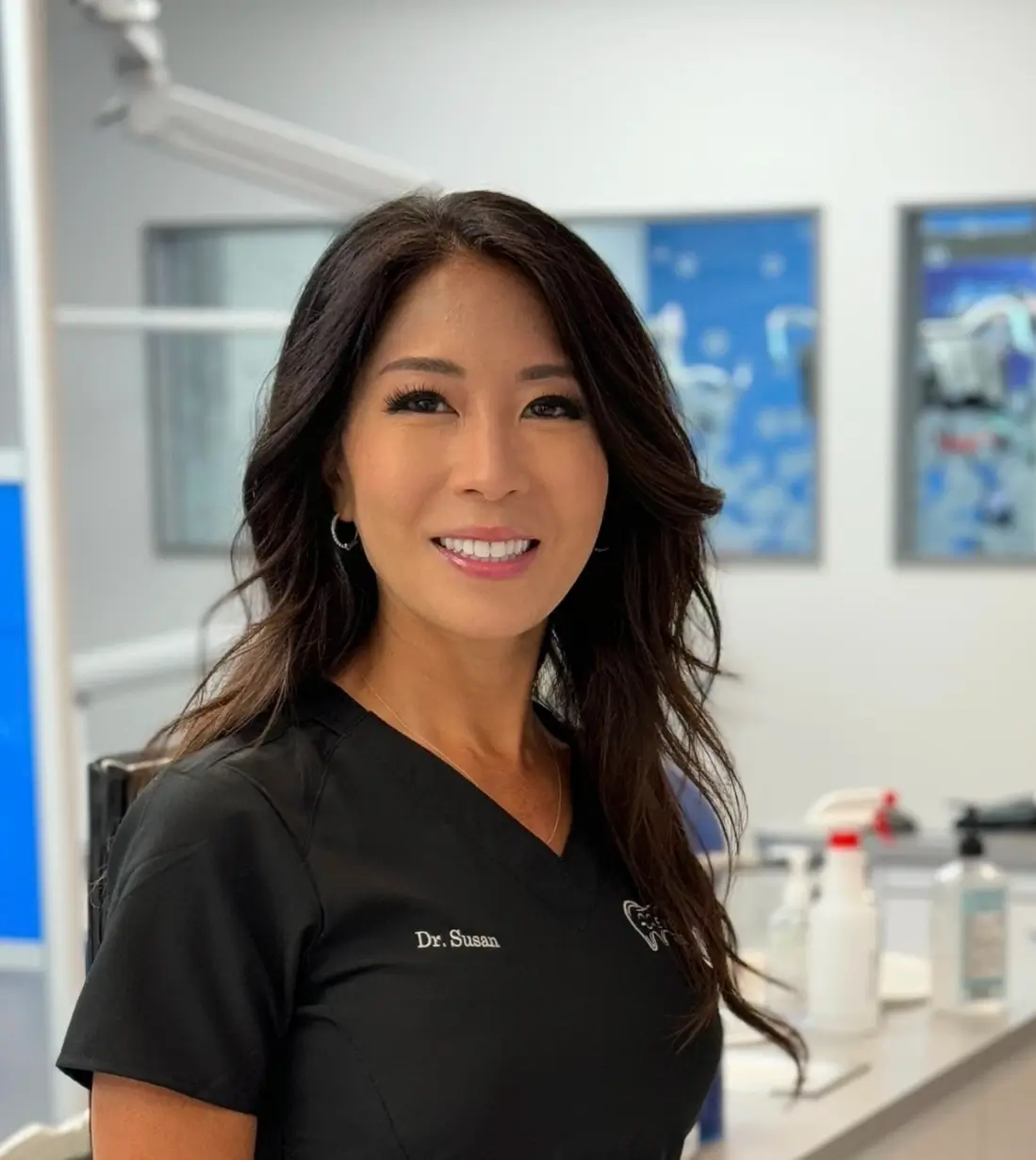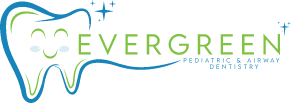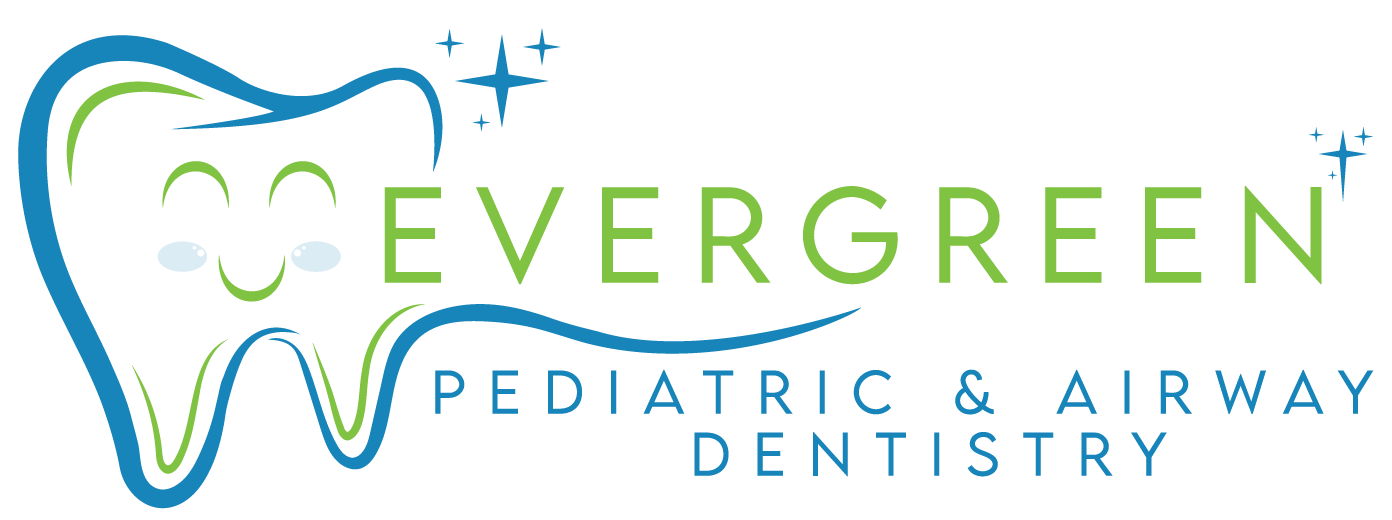Kirkland Pediatric Dentist
Evergreen Pediatric & Airway Dentistry in Kirkland, WA, provides gentle, expert care to turn dental & health concerns into healthy, happy smiles and healthy lives.
Personalized Care
Personalized dental & health care tailored to your child’s needs.
Kid Centered
Our focus extends beyond dentistry – it’s about relationships.
Healthier Lives
Healthier lives for kids start with clear airways for better breathing.
Kids-Friendly Dentist
When your child is struggling with dental pain or anxiety, it affects the whole family. We understand how hard that can be and we’re here to help. At Dr. Susan Kim’s Pediatric Dentistry, our mission is to turn dental visits into positive, stress-free experiences for both kids and parents.
Dr. Susan and our warm, kid-friendly team specialize in gentle, expert care that not only treats the issue but restores peace of mind. From first checkups to second opinions, we’re your trusted partner in building healthy habits and confident smiles.
Let’s bring back the joy to your child’s smile. Call us at (425) 814-3196 to book your appointment.

Get In Touch With Us Today!
Helping Kids Breathe, Sleep, and Grow Better
Sleep-disordered breathing (SDB) often starts with underdeveloped jaws—and it can lead to a wide range of issues in growing children, including:
- ADHD or difficulty focusing
- Bedwetting
- Snoring or teeth grinding
- Tongue or lip ties
- Crowded, crooked teeth
A recent study shows that nearly 93% of children have underdeveloped jaws, leading to misaligned teeth and potential breathing concerns. Many of these problems begin early—sometimes as young as 6 months old.
Dr. Susan is specially trained to spot signs of airway-related issues and poor jaw development early. She partners closely with pediatricians and medical professionals to provide coordinated care that improves your child’s breathing, sleep, and long-term health. Her goal? To help your child grow up breathing through their nose, sleeping soundly, and smiling with confidence.
Take Our Smiles Quiz
Your Child's Smile Is Our #1 Priority
What is Airway Dentistry?
Dr. Susan specializes in Airway Dentistry, focusing on improving breathing issues. Our team knows how important breathing is to health. We look at the whole picture to fix airway problems. This helps you feel your best.
We use cool tools to check for things like blocked airways, snoring, and sleep troubles. Our dentists tailor plans just for you. This might mean special devices, exercises, or other steps. Better airways mean better sleep and more energy.
Don’t ignore breathing problems. Call us to see how we can help your child breathe better and boost their health.
Our Pediatric Dental Care Services
Our Goal is Pain Free Kids Dental & Airway Care
Is Your Child's Airway Healthy?
Take Our Quick Quiz to Find Out!
The questionnaire has been designed to determine how your child is managing their sleeping and if it is affecting their daily life. Let Us Figure it Out With You! Tell us What's Going on To See if We Can Help.
Take Our Sleep Quiz!Introducing SuperMouth!
The First Dentist-Invented Mouthcare System for Families
Comprehensive oral care
Evergreen Pediatric & Airway Dentistry is proud to partner with SuperMouth, a revolutionary line of holistic dental products. These innovative, safe, and effective solutions align perfectly with our commitment to providing top-notch care for growing smiles.
We’re excited to bring the benefits of Supermouth directly to our patients. Whether you want to explore these exceptional products online or “taste” them in our office at your next visit (yes, they’re that safe!), we’ve got you covered.

Real Patients, Real Stories

MEET DR. SUSAN KIM
Your Pediatric Dentist in Kirkland, WA
Dr. Susan received her dental degree in 2000 from Columbia University College of Dental Medicine. Combining her two passions, children and dentistry, she continued her training in a pediatric dentistry postdoctoral program at Columbia. In addition to providing the best customized dental care for your child, Dr. Susan is on a mission to help her patients breathe better and sleep better so that they can achieve their optimal growth potential.
Dr. Susan is a certified provider for Vivos and HealthyStart, Myo Munchee and Myobrace programs that help children address sleep disordered breathing, snoring and mild to moderate sleep apnea in a non-invasive, non-surgical approach. She is also certified with Light Scalpel, a CO2 laser used to release tongue and lip ties on babies through adults.
Her four teen boys keep her busy cooking in her free time, but she likes to sneak out onto the golf course if she can or find some peaceful moments in yoga.
Painless Dentistry is Our Goal
Get Started in 4 Easy Steps….
Evergreen Pediatric & Airway Dentistry
Our dental office is conveniently located on Totem Lake Blvd in Kirkland. Get directions to our office or book an appointment today!
Contact Us
Phone:
425-814-3196
Address:
12910 Totem Lake Blvd NE #103,
Kirkland, WA 98034
Email:
hello@evergreenkidsdentist.com
Practice Hours
Monday: 7:30am-4:00pm
Tuesday: 7:30am-4:00pm
Wednesday: 7:30am-4:00pm
Thursday: 7:30am-4:00pm
Friday: Closed
Saturday: Closed
Sunday: Closed
Common Questions About Pediatric Dentistry
What is pediatric dentistry?
Pediatric dental care is specialized dental care designed to help children under 18 enjoy happy, healthy smiles. Pediatric dentistry should help set a child up for a lifetime of good oral hygiene habits and a beautiful smile. Dr. Susan Kim, your child’s board-certified pediatric dentist, is ready to help them maintain optimal oral health.
Why is pediatric dentistry important?
Pediatric dentistry is important because children have different dental needs than adults do. Their jaws and teeth are still developing and need the skills of a dentist who is experienced in treating children on a regular basis. We love seeing kids of all ages in our office, so you can feel comfortable bringing them here for their smile care. Dr. Susan is certified to use Vivos and HealthyStart, Myo Munchee and Myobrace program solutions that promotes healthy development to help your child avoid the need for orthodontic care.
When should a child first visit the dentist?
Generally, children should visit the dentist when their first tooth comes through, or by age 1. It’s important that your child feels comfortable about visiting the dentist, so we maintain a kid-friendly atmosphere to make their dental experiences positive from an early age. We’ll provide preventive care, closely monitor their dental development, and help with issues like pacifier use and thumb sucking.
Can I prevent cavities in my child’s teeth?
Good oral hygiene and regular care from a pediatric dentist go a long way toward preventing cavities. Make sure your child brushes at least twice a day with a toothpaste that contains fluoride, and see us every six months for an exam and cleaning. It’s also a good idea to limit their consumption of sugary or highly acidic foods ad drinks. For added protection against cavities, ask your dental team about treatment with fluoride and/or dental sealants.
Are pacifiers bad for teeth?
They can be. They can affect the alignment of your child’s teeth and may even cause changes in the roof of the mouth. Dental problems related to pacifier use are more common in children older than age 2, those who vigorously suck their pacifier, and those who use one all of the time. If you’re concerned about your child’s pacifier use, let us know. We can offer suggestions to help wean them off a pacifier.
What is a laser infant frenectomy?
A laser infant frenectomy is a minimally invasive procedure designed to correct tongue-tie or lip-tie in infants. These conditions occur when the tissue connecting the tongue or upper lip to the mouth is too tight, restricting movement and potentially causing feeding difficulties. During the procedure, a specialized laser is used to release the tight tissue, allowing for a better range of motion. The use of a laser makes the process precise and gentle, reducing the impact on surrounding areas.
One of the key benefits of using a laser for this procedure is the reduced discomfort and minimal bleeding compared to traditional methods. The laser also cauterizes as it cuts, which promotes faster healing and less swelling. For infants, this means quicker relief from feeding difficulties and improved oral development. By addressing these issues early, a laser frenectomy helps set the stage for more effective breastfeeding or bottle-feeding and supports healthy growth and development. This information was provided by Dentistry of Bellevue! You can check them out here: https://dentistryofbellevue.com/
Is a laser frenectomy painful?
A laser frenectomy is generally not considered painful and is often more comfortable than traditional surgical methods. The precision of the laser allows for targeted removal of the tissue, minimizing bleeding, swelling, and discomfort. To ensure a painless experience, local anesthesia is typically used during the procedure, keeping you comfortable throughout.
One of the key advantages of using a laser is the quicker recovery time and reduced post-procedure discomfort. The laser helps seal nerve endings and blood vessels as it works, which promotes faster healing and minimizes the need for stitches. Many patients find the recovery process straightforward, with only mild soreness that resolves quickly. These benefits make laser frenectomy a popular and effective choice.
Is the Infant Tongue Tie Solution safe for my baby?
The Infant Tongue Tie Solution is generally considered safe when performed by trained healthcare professionals. Tongue tie procedures are routine and designed to address a condition where the tissue under the tongue restricts movement, potentially affecting feeding and speech. When done under the guidance of a qualified professional, the process is quick and involves minimal discomfort, with most babies recovering rapidly.
It’s essential to consult with your pediatrician or a specialist if you suspect your baby has a tongue tie. They can evaluate your baby’s situation and recommend the best approach. Addressing tongue tie issues early can have significant benefits, such as improving feeding, supporting healthy weight gain, and preventing potential speech challenges in the future. Prioritizing expert care ensures your baby’s safety and well-being throughout the process. Big thank you to Villa Orthodontics for sharing this information with us!
What are the common signs and symptoms of a dental abscess in kids?
A dental abscess in children often presents with several noticeable symptoms. One of the most common signs is a persistent and sometimes severe toothache, which may be accompanied by sensitivity to hot or cold foods and drinks. Parents might also notice swelling in the child’s gum or face near the affected tooth, which could lead to noticeable redness and tenderness in the area. Additionally, a child with a dental abscess may experience bad breath or a bad taste in their mouth due to pus draining from the abscess.
Other symptoms to watch for include a general feeling of discomfort or illness, as well as fever, which can indicate that the infection is spreading. Early detection is crucial as it helps prevent the abscess from worsening or spreading to other parts of the body. Seeking prompt professional dental care is essential to effectively treat the abscess and avoid potential complications, ensuring the child’s health and comfort are restored.
What is an infant frenectomy?
An infant frenectomy is a minor surgical procedure that involves the removal or modification of the frenulum, which is a small fold of tissue in the mouth. This tissue can restrict movement of the tongue (known as a tongue-tie or ankyloglossia) or the upper lip (known as a lip-tie). These conditions can cause difficulties with breastfeeding, speech development, and oral hygiene if left untreated.
The procedure is usually quick and minimally invasive. It can be performed using scissors, a scalpel, or a laser. Local anesthesia or a topical numbing agent is often applied to minimize discomfort for the baby. After the frenectomy, many infants experience immediate improvements in breastfeeding and overall oral function. Recovery is typically swift, with most babies resuming normal feeding habits shortly after the procedure.
How do I choose the right Kids Dentist in Bellevue WA for my child?
Choosing the right kids dentist in Bellevue, WA, begins with considering their qualifications and experience in pediatric dentistry. Look for a dentist who specializes in working with children, as they will have the training needed to address the unique dental needs of young patients. Reading online reviews and testimonials from other parents can give you insights into their approach and patient care. Additionally, ensure the dental office is child-friendly, with a welcoming environment that helps put your child at ease during visits.
Another important factor to consider is the communication style of the dentist and their staff. A good kids dentist should be patient, gentle, and skilled at explaining dental procedures to both you and your child in an age-appropriate way. Location and accessibility are also essential; choosing a conveniently located office can make appointments easier to fit into your schedule. Lastly, don’t hesitate to schedule a consultation to meet the dentist and discuss how they handle common concerns, such as dental anxiety, to ensure you feel confident in their care.


